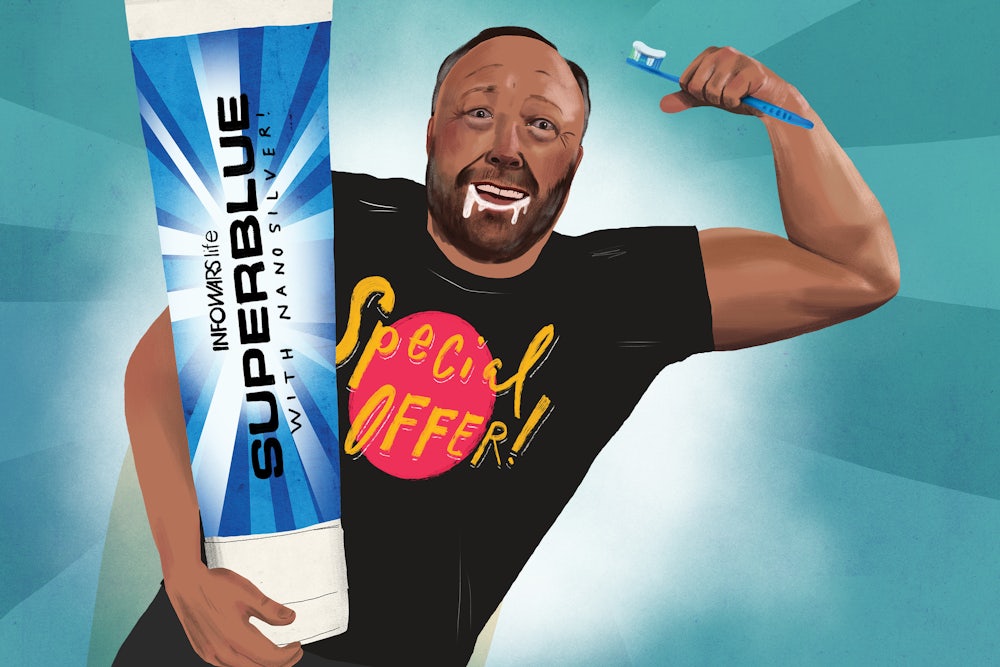To treat the Black Death, some doctors in the Middle Ages recommended ingesting “potable gold,” a vile tonic of gold compounds dissolved in ether. One might think that we had progressed past such bogus remedies, but in the age of the coronavirus, quacks and pseudoscientists are now pushing colloidal silver, long touted in wellness circles for its antimicrobial properties. (Gwyneth Paltrow, for instance, once said she sprays a little in her mouth and around her seat on planes to fend off germs.)
One day after the World Health Organization designated the coronavirus a pandemic, New York’s attorney general sent a cease-and-desist letter to a number of vendors hawking colloidal silver as a treatment. They included the Silver Edge Company, whose Micro-Particle Colloidal Silver Generator ($250) had already sold out, and the conspiracy theorist Alex Jones, whose special silver toothpaste, he promised, would obliterate “the whole SARS-corona family at point-blank range.” Other coronavirus remedies still available from various “holistic” practitioners include oil of oregano and “Spirit Dust,” an “adaptogenic” concoction of powdered mushrooms and roots from the LA cult brand Moon Juice.
The global crisis has inspired plenty of non-woo profiteering and price-gouging. In New York, a Midtown hardware store raised prices on hand sanitizer to nearly $80 a bottle before the city slapped the store with a fine. One enterprising English schoolboy was caught selling squirts of hand sanitizer to his peers for 50 pence a pump. At LAX, officials seized a shipment of fake at-home coronavirus testing kits. And email inboxes continue to flood with pandemic-pegged phishing scams that promise to show detailed maps of the virus’s spread if you’ll just click on this link and enter all your bank information. For the vaguely less craven, the pandemic has also provided some prime marketing opportunities. P.volve—a high-end fitness program that sells a proprietary ball that, when strapped between the legs, (the company claims) sculpts the buns—offered a 20 percent discount on said ball with the line, “Looking for a safer alternative to crowded gyms?” Finally, some are raking in money through dumb luck: According to the celebrity tabloid TMZ, the rapper Soulja Boy, who had fortuitously invested in a business called the Soap Shop prior to the onset of the coronavirus, has seen his profits explode due to the upsurge of handwashing.
Despite the proliferation of low-level hucksterism, when the pandemic eventually dissipates, the people sitting atop mountains of cash are more likely to be the usual suspects. Along with other pharma giants, the drug manufacturer Gilead Sciences has already received federal funding to pursue a coronavirus treatment. Oscar Health—Jared Kushner’s brother Joshua’s health care startup—announced it was launching a free coronavirus testing center locator tool (but that free coronavirus-related treatment would, of course, be limited to its members).* Then there are the industries that took a hit when the stock market tanked, but were almost immediately promised lifelines by the government. Trump has so far pledged bailouts for air and cruise lines, and while Democrats fought to include provisions in the stimulus package limiting stock buybacks, money could still end up in the pockets of wealthy shareholders.
Even international disaster relief could become a windfall for those already on top. After the 2014 Ebola crisis, the World Bank issued “pandemic bonds” to Third World countries struck by disease. Yet the guidelines concerning the payout were so byzantine that when Ebola roared back four years later, killing more than 2,200 people in the Democratic Republic of Congo, investors somehow escaped without paying a cent. Perhaps after all is said and done, we’ll know the coronavirus is truly winding down when the quack cures recede, the off-brand Purell is shelved, and the only scam left is just the one known as business as usual for get-rich-quick opportunists of all stripes. What a relief that will be.
* A previous version of this article mischaracterized Oscar Health’s coronavirus testing tools.
